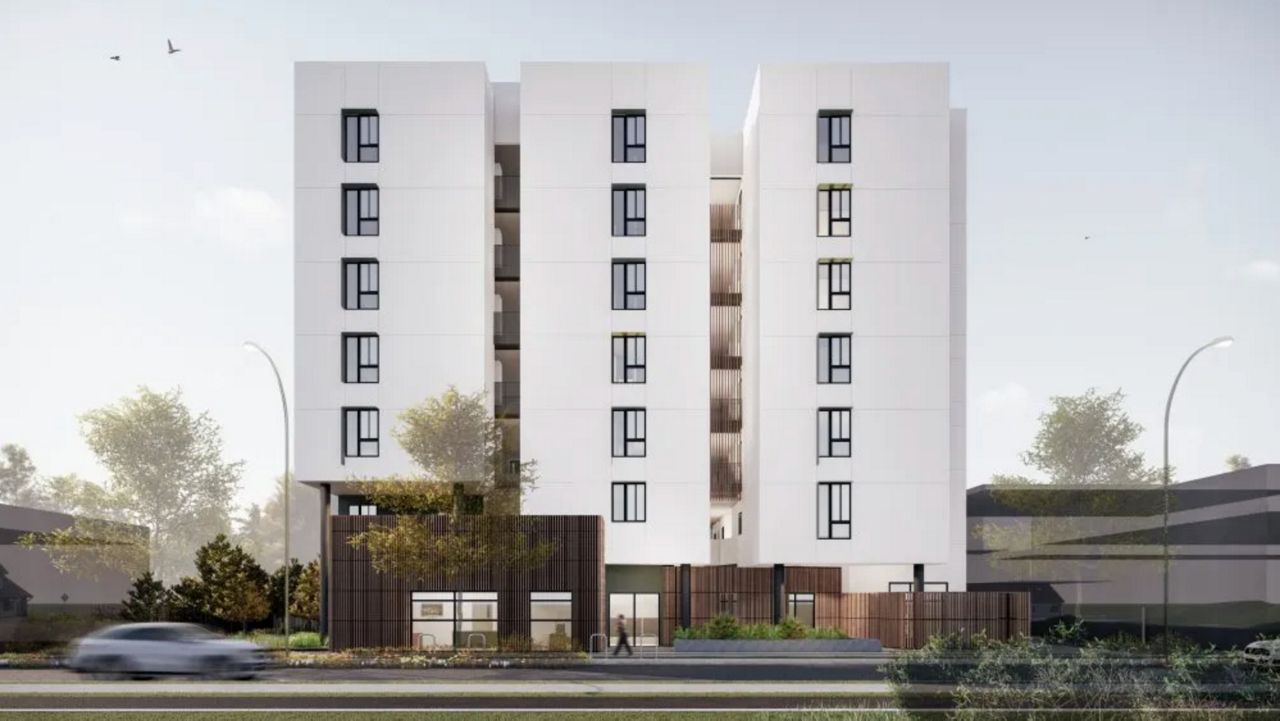LOS ANGELES — The emergency homelessness declaration Los Angeles Mayor Karen Bass enacted on her first day of office seems to be bearing fruit. On Tuesday, a 175-unit building that will provide deeply affordable and permanent supportive housing for formerly homeless individuals broke ground on the border of Little Tokyo and Skid Row.
“We would literally not be here today if not for those actions,” said Erich Nakano, executive director of the community development organization, Little Tokyo Service Center, which spearheaded the Umeya housing project.
Nakano said the Umeya was stalled for six months waiting for city clearances, but once the mayor’s office intervened, it was able to get the necessary permit within one month. The mayor’s office also intervened in early April when the development encountered a funding obstacle that threatened to derail the project entirely. But working with the city’s Housing Department, Little Tokyo Service Center resolved the issue in 24 hours.
“Some would say, ‘Come on. Nothing in the city moves that fast,’ but newsflash: Under the right leadership, it can, and it did,” Nakano said.
Tuesday’s groundbreaking took place just before Bass formally introduced her 2023-24 fiscal year budget, including an unprecedented $1.3 billion to fight homelessness. Since December, when the mayor’s executive directive streamlined permitting and entitlements for affordable housing, the city has been able to approve projects within 60 days, according to LA Deputy Mayor of Housing Jenna Hornstock. The city currently has 350 projects in development that will provide 7,500 affordable housing units.
The Umeya is one of them. Located in a former rice cake factory, it’s been in development since 2019, when the Hamano family, which owned and operated its three-generation family business on the site for 100 years, approached Little Tokyo Service Center about transforming the building into affordable housing.
When completed in two years, the presently defunct factory space will be transformed into a seven-story building with 102 studio apartments, 60 one-bedrooms, 11 two-bedrooms and a pair of two-bedroom manager units. Of its 175 units, 87 will be permanent supportive housing leased through LA County’s Coordinated Entry System. The general affordable units will be leased through a pre-application, lottery and interview process.
Designed by LA-based Fsy Architects, the Umeya’s ground floor will include 13,000 square feet of community, commercial and service provider space, a 4,000-square-foot landscaped courtyard and a community-led mural by a local Skid Row artist, as well an exhibit that honors the owners of the Japanese-American family-owned business that provided the building.
Gov. Gavin Newsom and the California legislature have allocated $40 billion to cities, counties and community-based organizations to build comprehensive housing and homelessness solutions in places that are well connected to transit and community amenities. Located on Towne Avenue, the Umeya is just a couple blocks from the Little Tokyo Metro Gold Line station and around the corner from the nonprofit service provider, Homeless Health Care LA.
To build the Umeya, Little Tokyo Service Center received half of its total development funds — $86 million — from the California Department of Housing and Community Development. The Umeya is one of 57 projects throughout the state that received a portion of $2 billion in housing accelerator monies from the state agency.
“We all know that affordable, accessible and supportive housing is key to everything that we do,” said Lourdes Castro Ramirez, secretary of the California Business, Consumer Services and Housing Agency. “It affects health outcomes. It affects quality of life and the ability to build community.”



